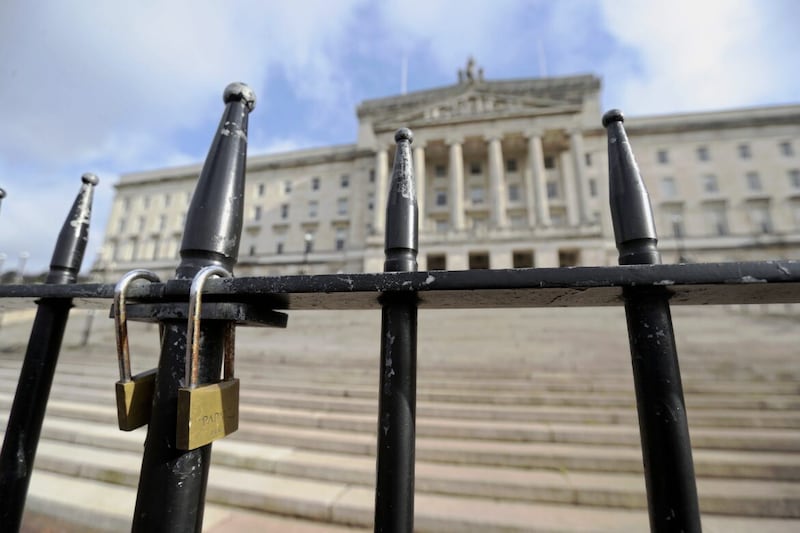In celebrating the 25th anniversary of the Good Friday Agreement (GFA), what exactly is there to celebrate? It is, of course, heresy to ask such a question, but as someone once said, heresy is the reminder of a hidden truth.
The hidden truth about the GFA is that it is a triumph of spin over substance, making it the most fashionable political accessory in Irish history since the shamrock. However, in examining where we are 25 years later, it is hard to avoid the conclusion that the Agreement was conceptually flawed, politically impractical and socially and economically neglectful.
The conceptual flaw was that it enshrined religious difference and suffocated the common ground which kept our society together during the Troubles. Our sectarian war was to be resolved, not by rewarding anti-sectarianism, but by facilitating entrenchment. Thus the Agreement was effectively a military ceasefire in a flimsy and ambiguous political wrapping.
Our new institutionalised sectarianism was based on the theory that Ireland consists of two nations. This undermined the republican case for Irish unity, which has always been based on the concept of a single Irish nation.
Every year the Irish government grants Irish citizenship to thousands of immigrants. Ashok Varadkar arrived in Ireland in 1973. His son is now Taoiseach.
However, in the GFA, the Irish government agreed that those who arrived in Ireland during the Ulster Plantation over 400 years ago were not Irish.
So the Agreement declared that: “Northern Ireland in its entirety remains part of the United Kingdom.” Having fought a 30-year war to demolish the northern state, the IRA described the Agreement as a stepping stone to a united Ireland. That brought spin to a new level of dizziness.
Ireland remained divided and the north was to be additionally sub-divided. Today MLAs have to effectively declare their religion when entering Stormont (although in fairness, they do not enter it often.) Our shared humanitarian values and common identities, as evidenced recently by people like Robin Swann during Covid, were smothered.
Enshrining sectarianism in the structure and system of government propelled the two most sectarian parties into permanent power. Those who cheered the loudest at the Agreement’s signing lost the most.
The Women’s Coalition was gone within two years, irrelevant to sectarianism. The moderate SDLP and UUP suffered slower deaths, but both are now largely immaterial in the greater sectarian scheme of things.
Sectarian division here has never been greater. Belfast has over 100 walls keeping Catholics and Protestants apart. Despite that, the common ground which the GFA suppressed is now slowly emerging in opinion polls. Imagine where we could be if the Agreement had rewarded integration rather than division as a basis for peace.
Sadly, the GFA was a wasted opportunity.

As an experiment in government Stormont has failed. It has been missing for nearly 40 per cent of its lifetime. Because the big two parties are elected on religion rather than performance, our apolitical elections are just about keeping the other side down.
The result has been social and economic neglect. We entered the Troubles in a British welfare state and emerged into an American free market system (cue US presidential visits) thereby becoming a Thatcherite state by consent.
The outcomes are clearly visible: a collapsed health service; a failed social care system; rampant poverty; the rapidly increasing dependency on food banks; underfunded education provision; and a welfare system increasingly reliant on private sector firms for its delivery.
So what is there to celebrate? Yes, all sides have (almost) stopped killing each other, but only after they were effectively guaranteed immunity for prior violence. Shamefully, some paramilitaries are still being bought off by government funding.
A wake might be more appropriate than a celebration and following the wake we might reasonably bury the GFA and start again. It just hasn’t worked. Heresy? Of course it is, but a bit more heresy in 1998 would have prevented us from getting into this mess in the first place.








